Bai Chongxi and the Six Ploughs: The Muslim General Who Sleeps Beside the Victims of White Terror
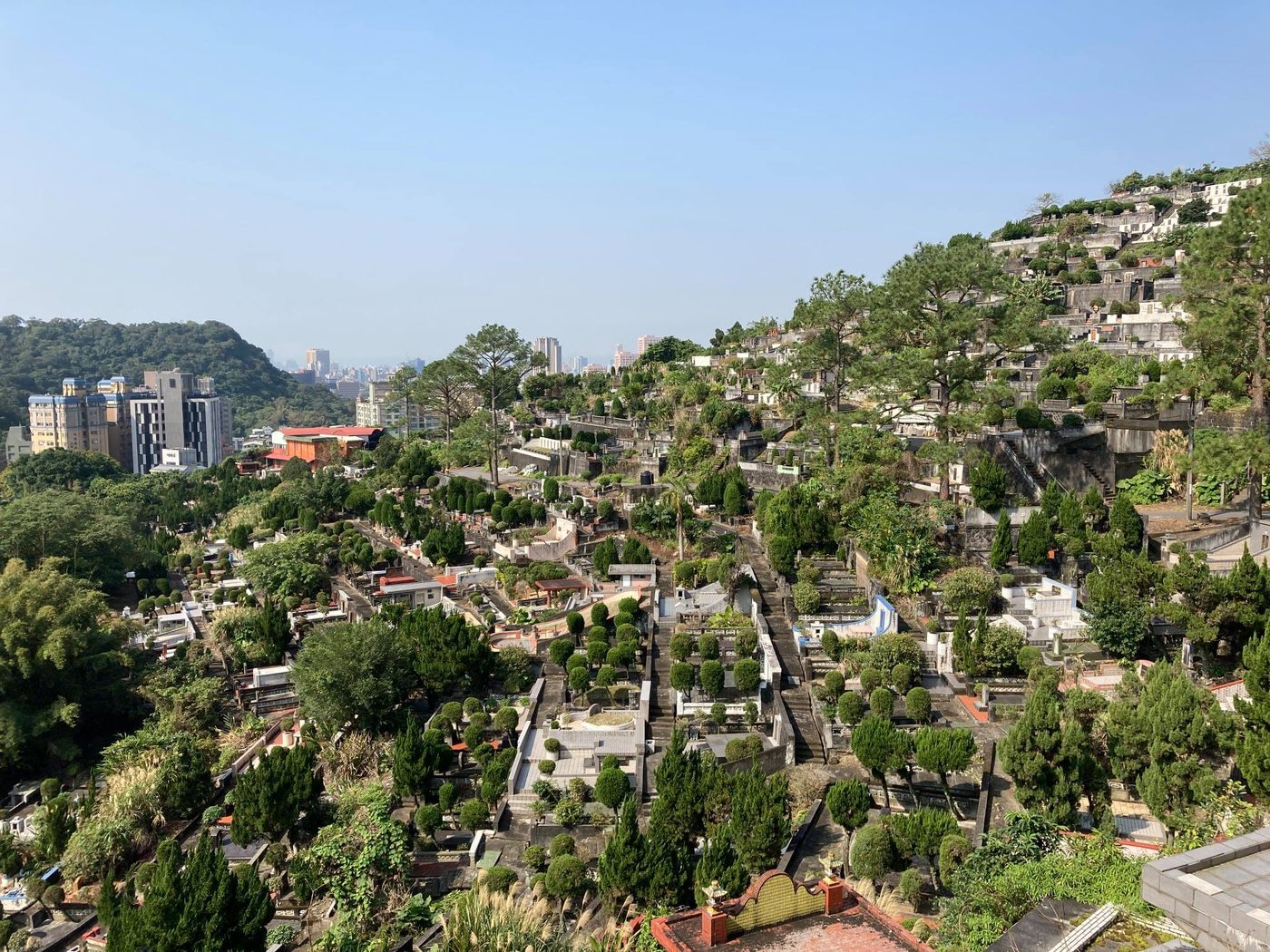
Since I saw the military cemetery on Wuzhishan more than eight years ago, I began to fall in love with visiting the cemetery.
Most people's impression of Liuzhangli Cemetery is probably the "white terror mass grave" in the movie "Super Citizen", but not many people know that there are also very few Muslim cemeteries in Taiwan. One.
It may be unfamiliar to say "Muslim cemetery", but when it comes to Bai Xianyong's father, Bai Chongxi, most people may have heard of it.
Bai Chongxi, whose hometown is in Guilin, Guangxi, is actually a Muslim; after his death in 1967, Chiang Kai-shek helped him build a grand cemetery in Liuzhangli, with a Chinese-style archway mixed with Islamic architectural vocabulary, and an Islamic-style cemetery. Tomb Pavilion.
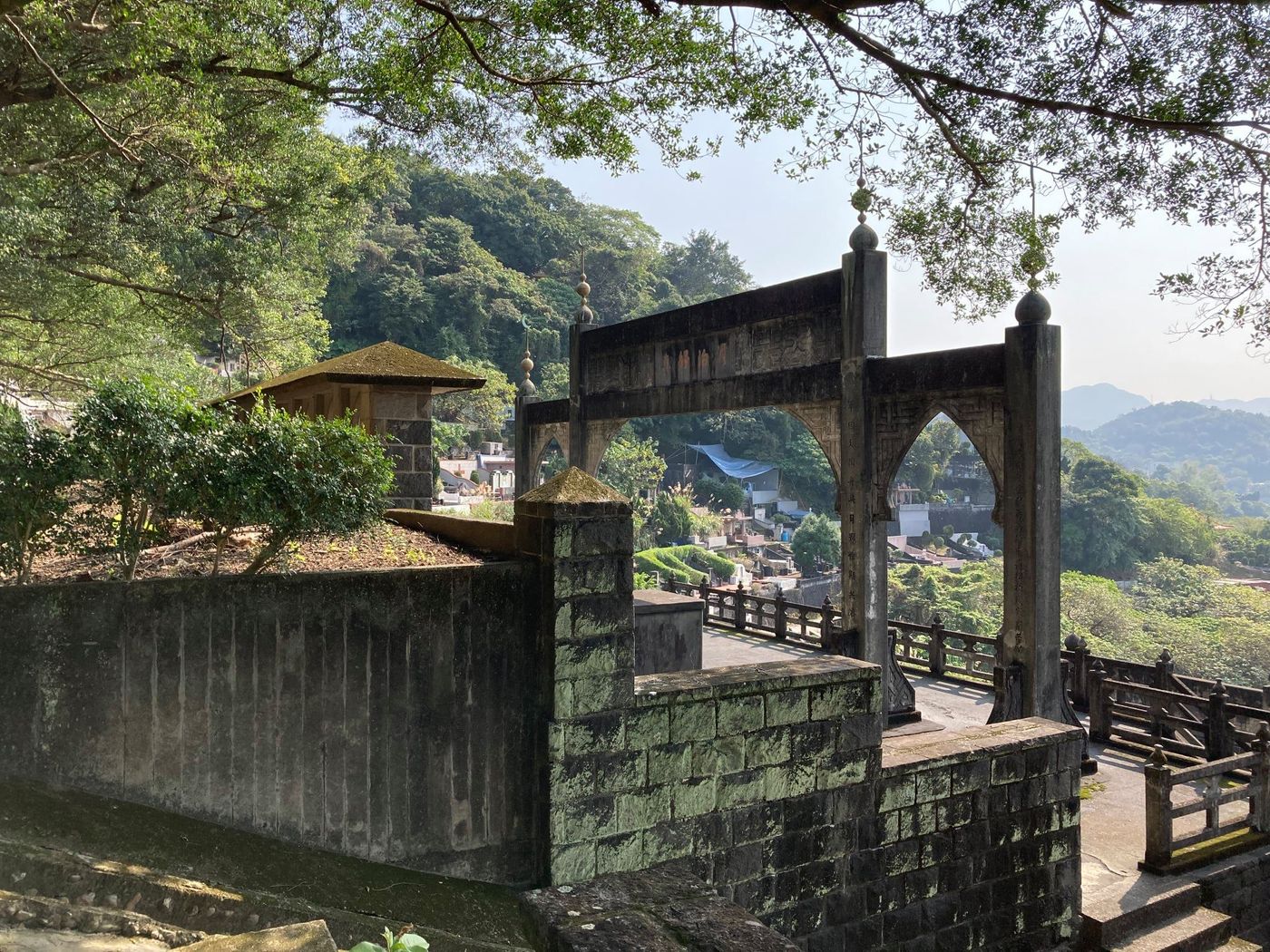
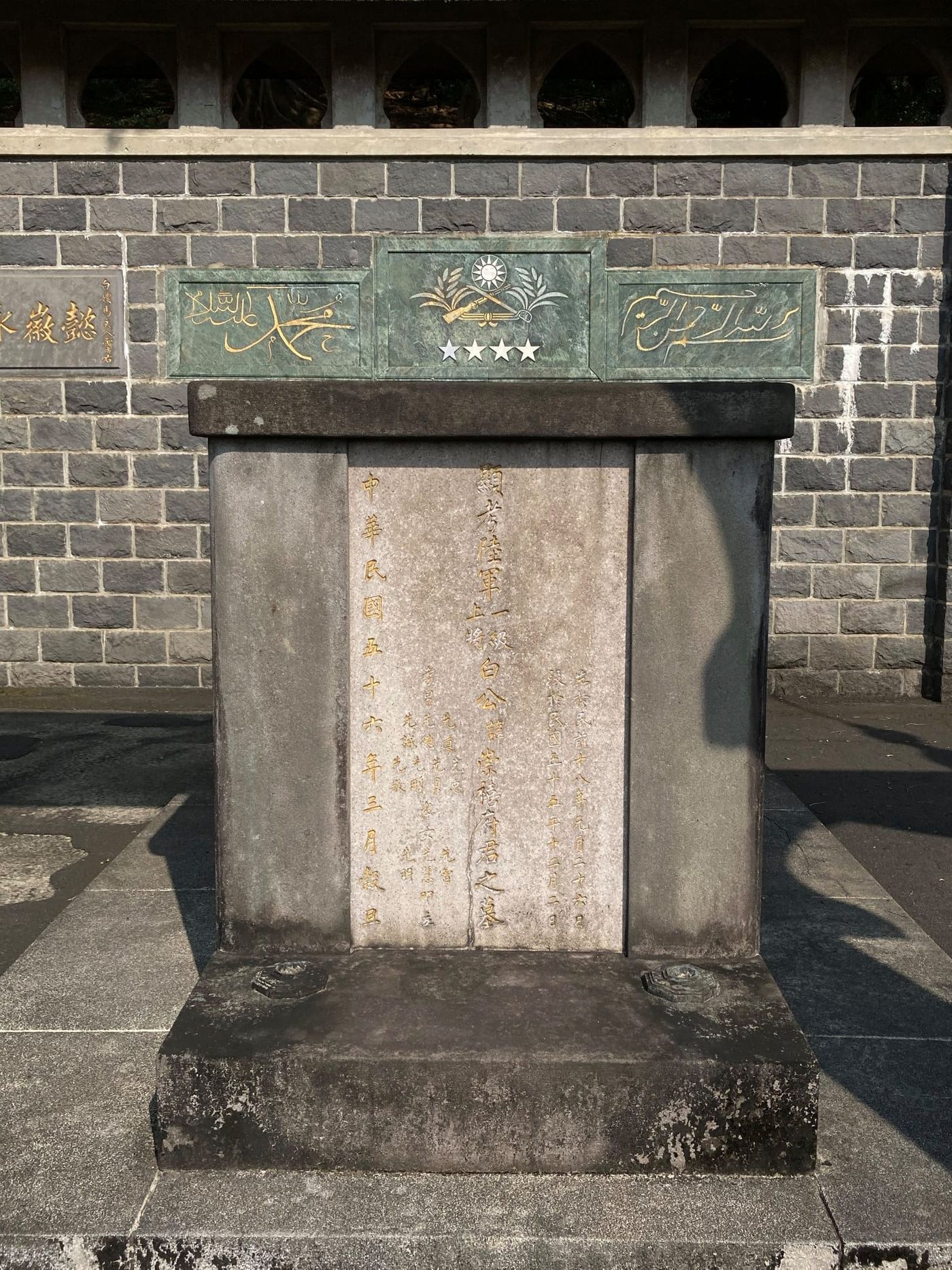
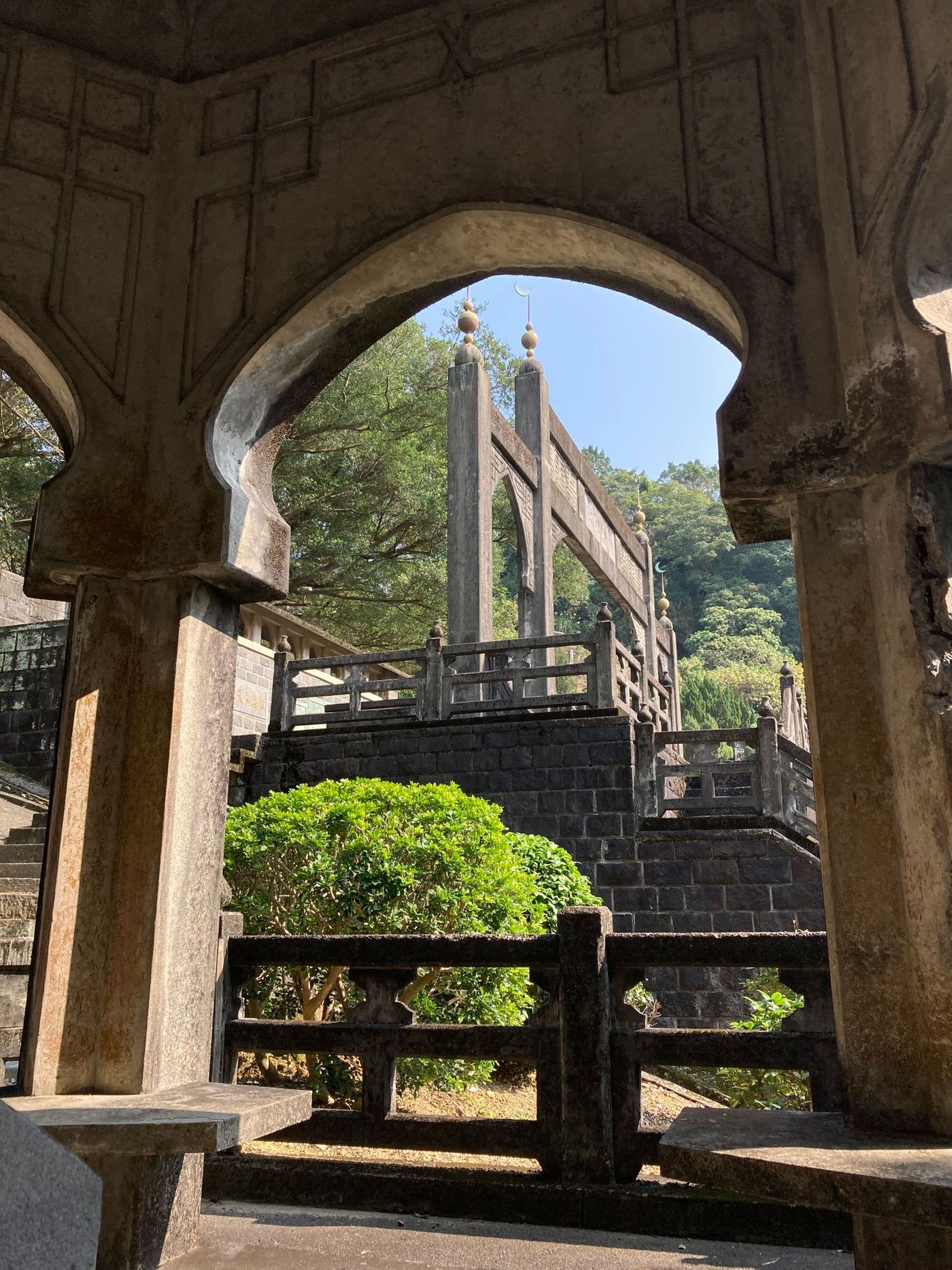
Generally speaking, the spiritual world of Muslims is "transcendent": if you look at the national flags of modern Muslim countries, religious symbols such as "Xingyue" and "Muslim" are generally quoted, and they are less afraid to refer to the secular "Muslim". national symbols" on the national flag.
However, as a first-level general, Bai Chongxi obviously still has to put the party-state as the top priority: in the totem behind the tombstone, the center position was given to the party emblem/national emblem of the blue sky and white sun. This approach is seen in the eyes of most Muslims in the world. , I am afraid it is a big deal.
But in addition to Bai Chongxi, there are actually many unknown Muslims in the cemetery.
After walking around the cemetery a few times, I couldn't help but feel fortunate that I went to Kuwait to learn Arabic. At least I could read the inscriptions and religious names on the tombstones (but I also regret that I didn't study it carefully).
On some tombstones, "Muslim's Tomb" (قبر المسلم) is written in Arabic, but it is more common to use the Christian name of the deceased - the most common name for men is Abdullah (عبدالله), and women don't know why. , Many people are called Aisha (عائشة) and Fatima (فاطمة).
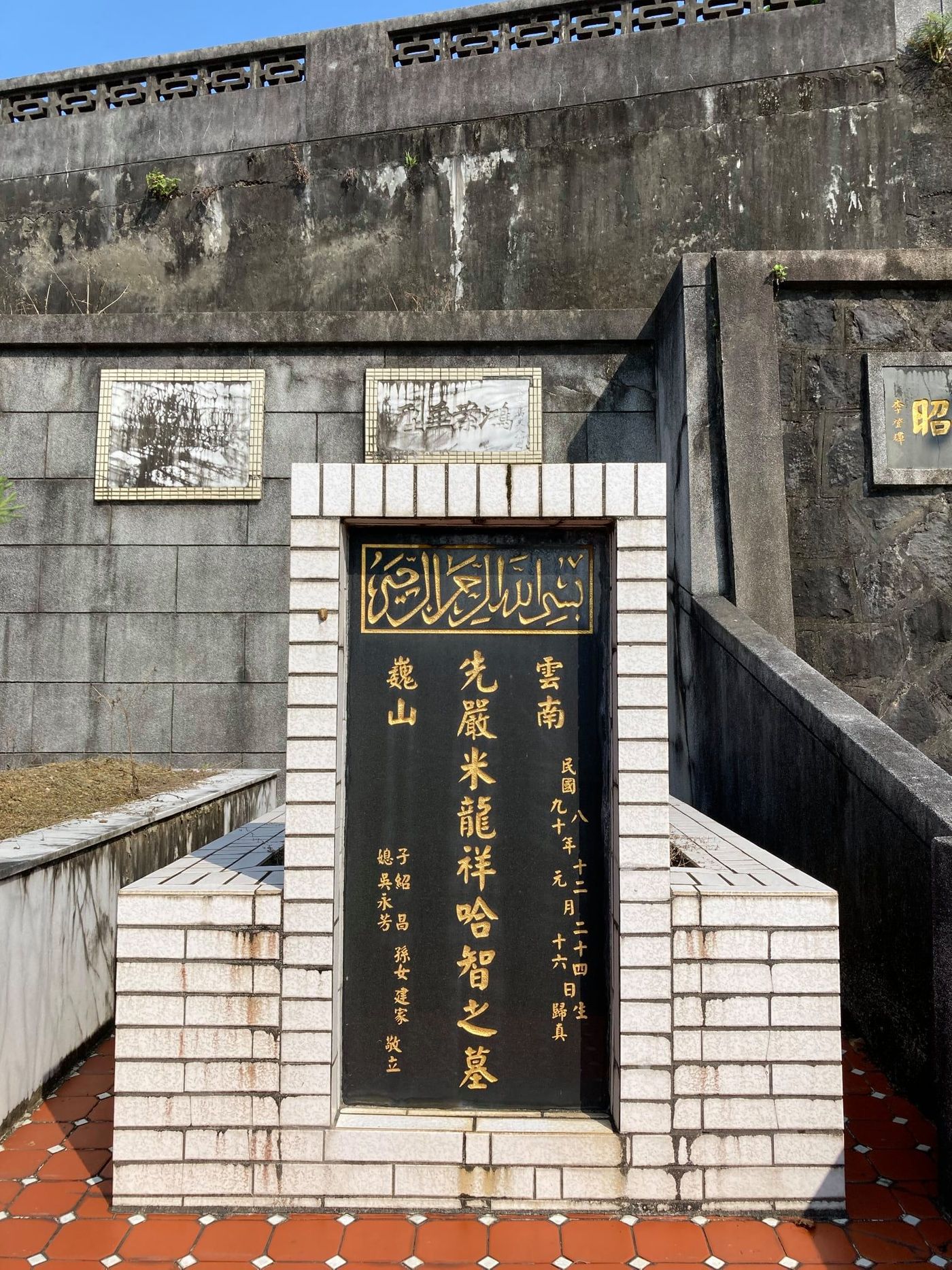
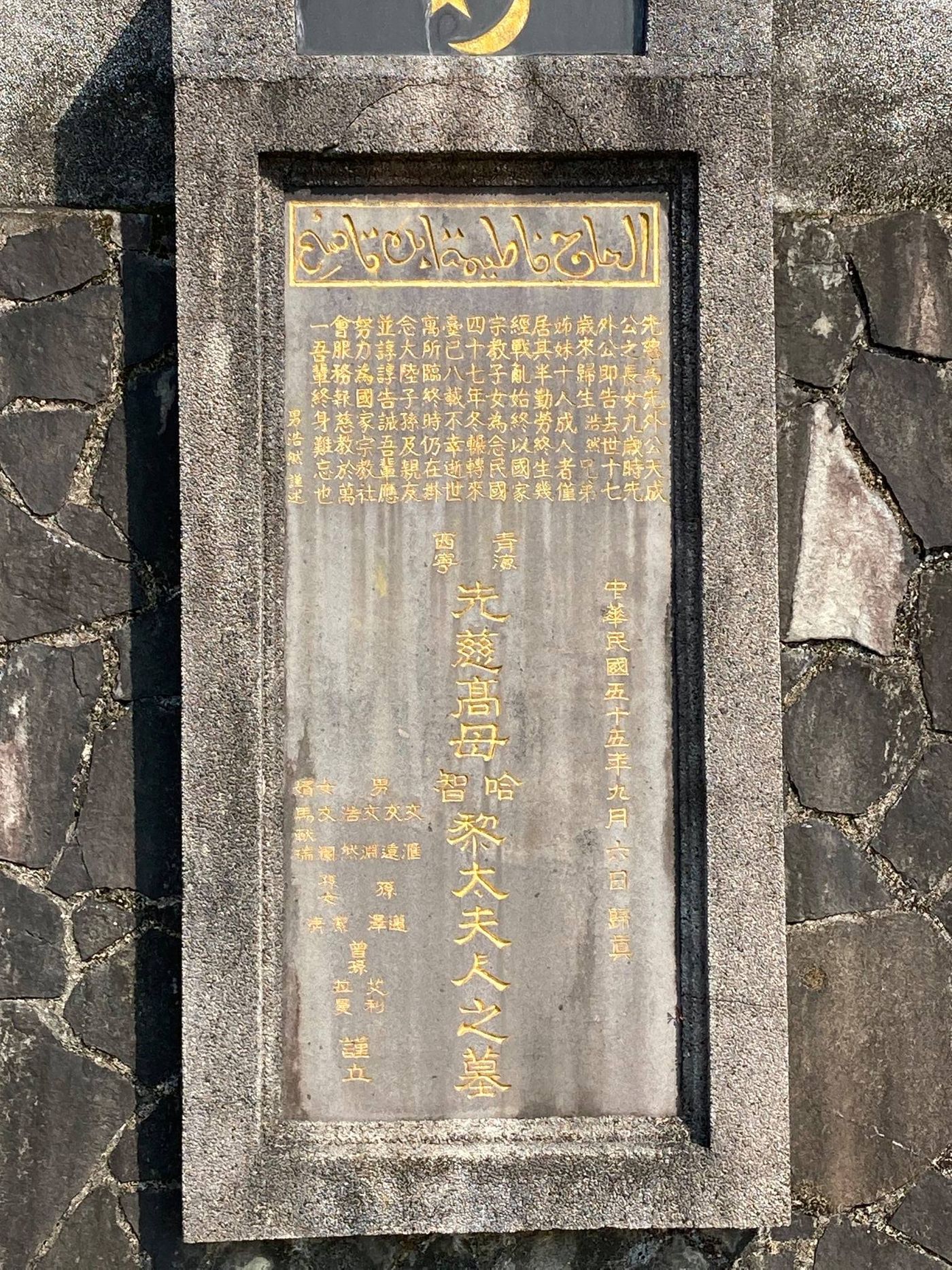
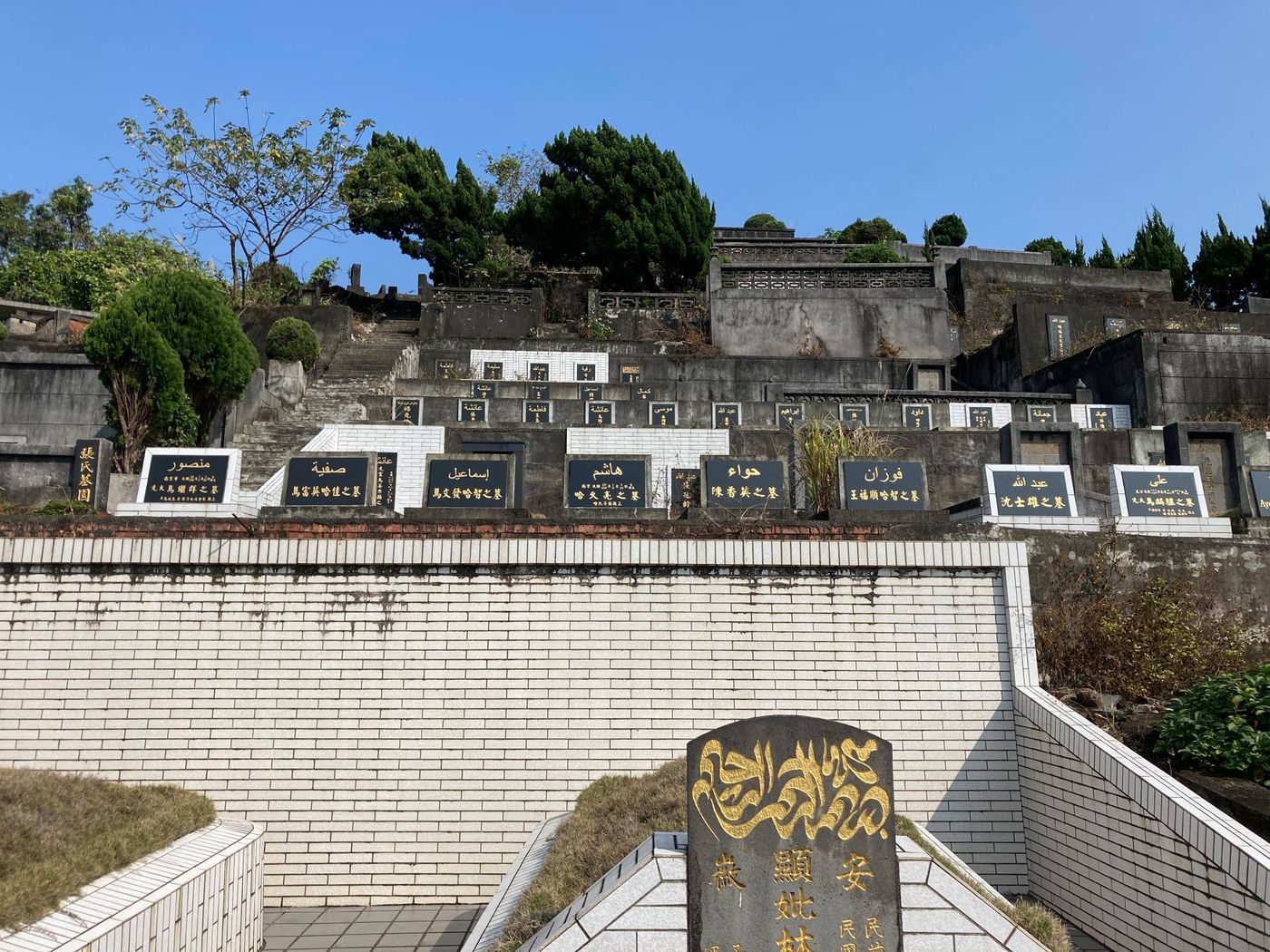
If you only look at Chinese names, more than half of the surnames in the cemetery are "Ma", "Ha", "Bai", "Mi" - if you encounter these surnames in Taiwan today, it is very likely that you are a Muslim 's descendants. As for the place of origin, the distribution is quite even, ranging from Shandong, Guangdong, Jiangsu, Henan, Anhui, to Yunnan and Gansu.
The names of people on some tombstones will also add the word "Haji" (الحاج), which is actually the honorific title for "people who have been to Mecca for pilgrimage" in Arabic; if it is a woman who has been to Mecca, then Will be crowned "Hajia".
Although there are many things to see in this cemetery, I think the most paradoxical thing about this cemetery is its location - it is right next to the "cemetery for political victims of martial law".
This group of Muslims who followed the Kuomintang is actually the so-called "outsiders"; although in the stereotype of ordinary people, these "outsiders" stand with the Kuomintang regime as "white terror perpetrators", but in the After his death, he was buried next to the victims of the White Terror.
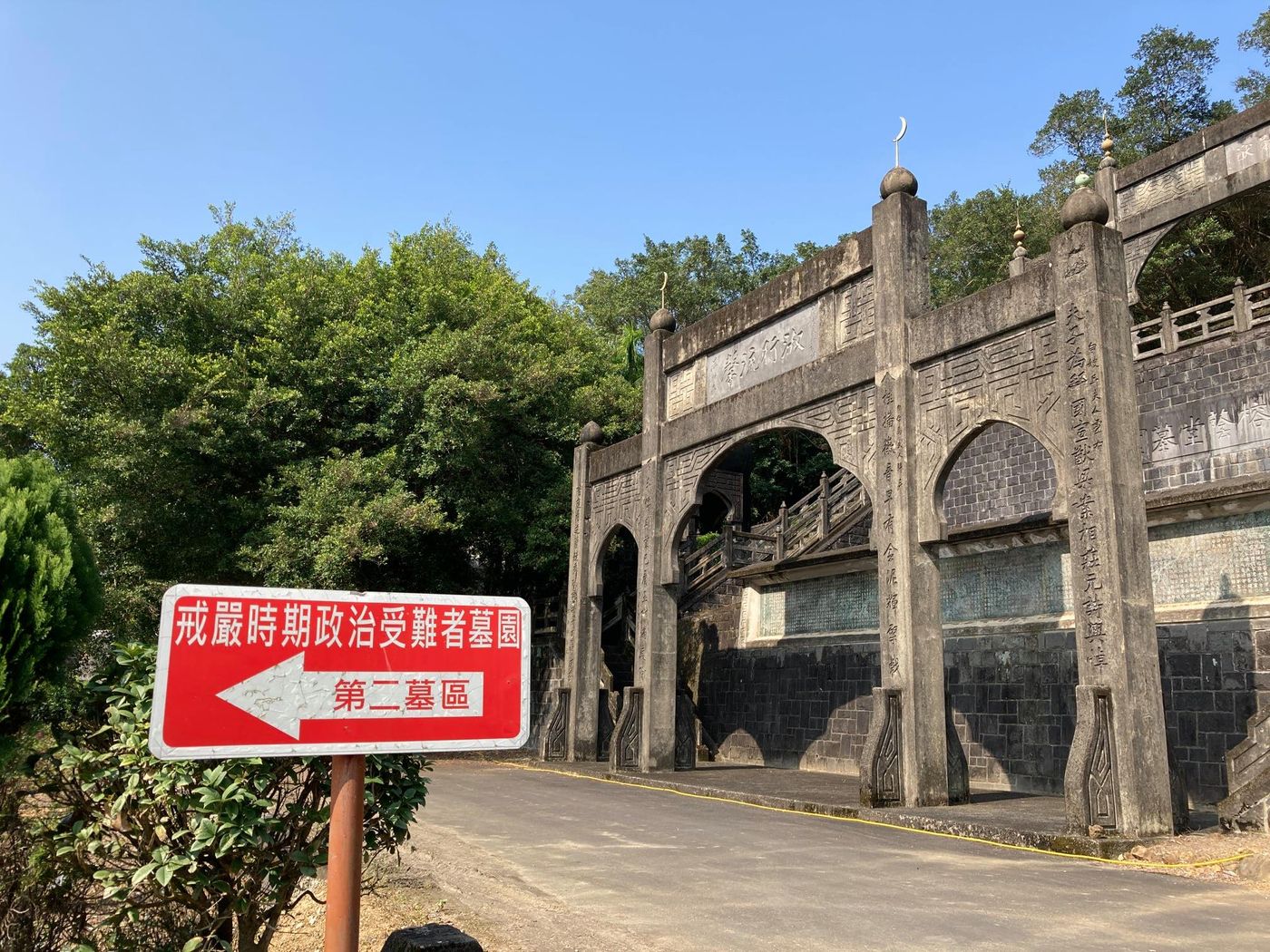
But this is probably also the fascinating part of Taiwan.
Although the Kuomintang regime did bring oppression to many ethnic groups, it also brought many different elements that make Taiwan so rich today—the existing Muslim culture in Taiwan was basically brought by the Kuomintang in 1949. Only later did new immigrants from Southeast Asia join.
To jump to another point, the several cemeteries of Liuzhangli probably also reflect to me why "transitional justice" is a bit similar to "the libation ceremony": all the ceremonies and mourning about the deceased may be for the sake of The purpose is to regulate the way of life of the living.
Some people think that "transitional justice" is useless, it is better to put aside the historical burden and look forward. To a certain extent, this statement is not wrong, because over time and the change of generations, the historical trauma will gradually fade away - in fact, the crystallization of various civilizations we see today was originally made of killing and blood and tears. .
But this kind of indifference due to the washing of time is only "forgetting", not "reconciliation" after all. In this regard, transformational justice may be a more empowering action that can put "reconciliation" and "memory" into one's own hands, rather than passively waiting for time to wash away.
That's why we can see the "cemetery of political victims during martial law" today reappearing next to the "Muslim cemetery" and even coexisting.
But anyway, the Muslim cemetery in Liuzhangli is really interesting, whether you are interested in the Islamic world, curious about the little-noticed Muslim ethnic group in Taiwan, or just want to have the feeling of "pseudo-going abroad", here It's a very good place to go, super recommended!
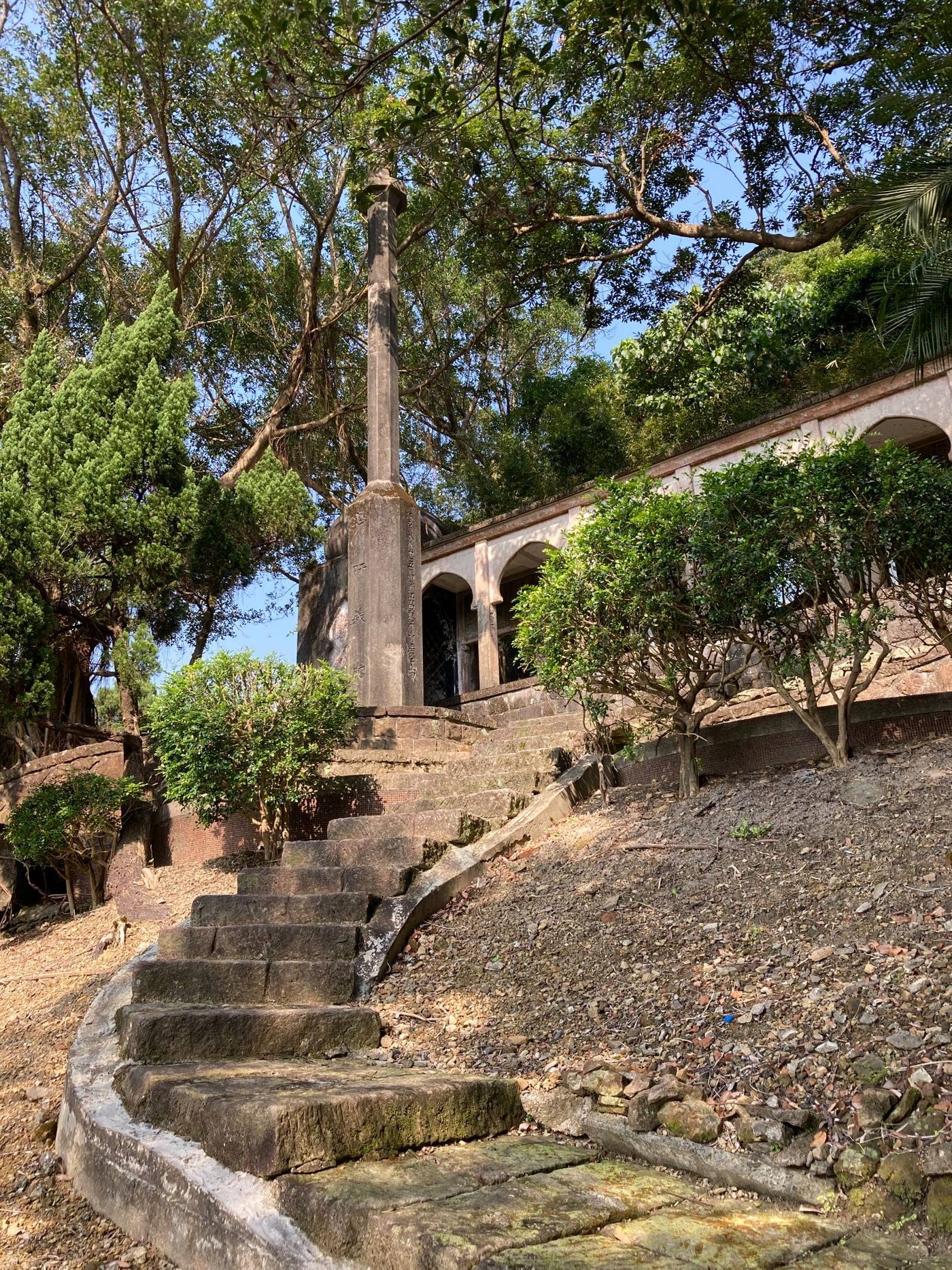
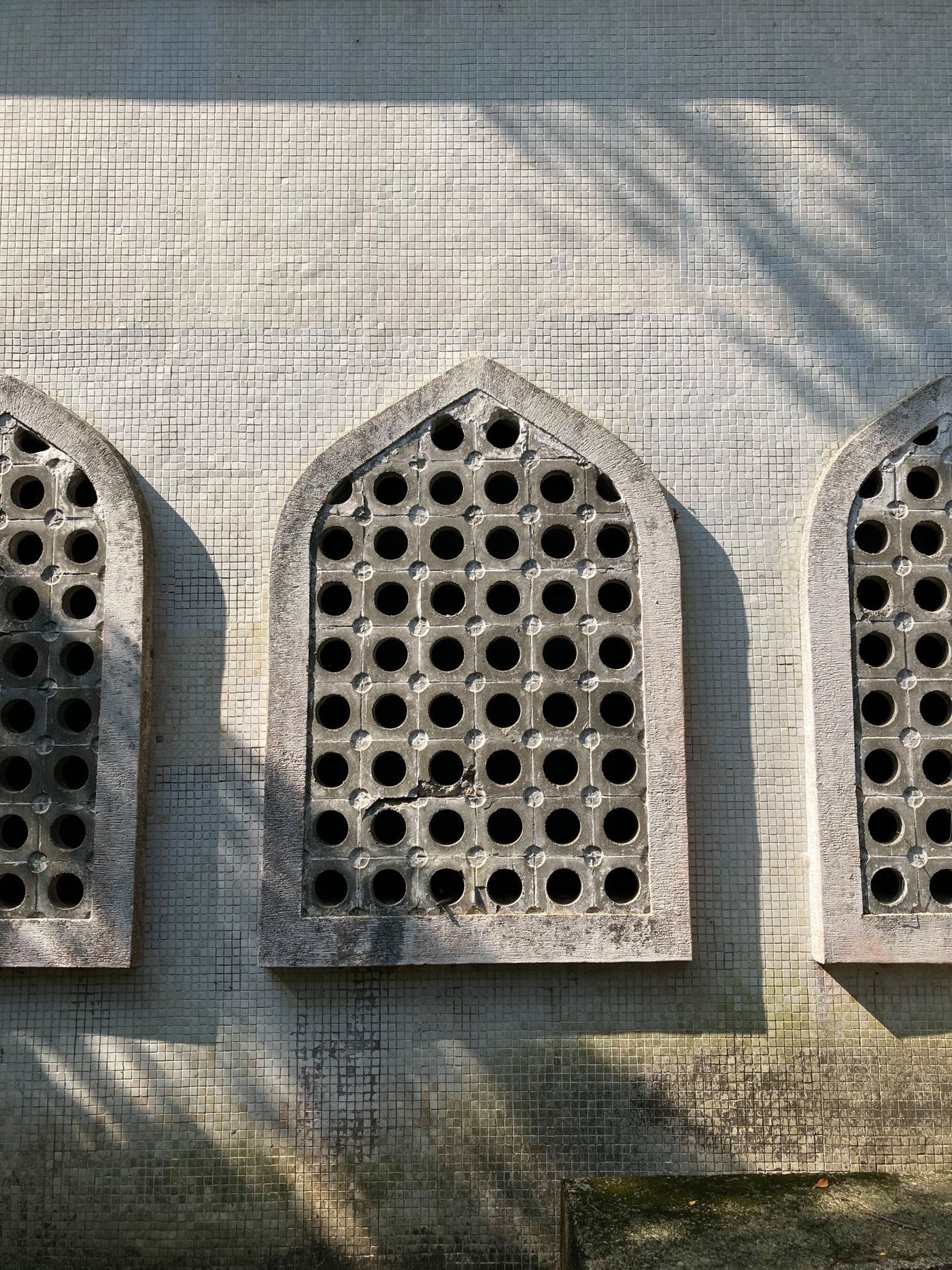
Like my work? Don't forget to support and clap, let me know that you are with me on the road of creation. Keep this enthusiasm together!


